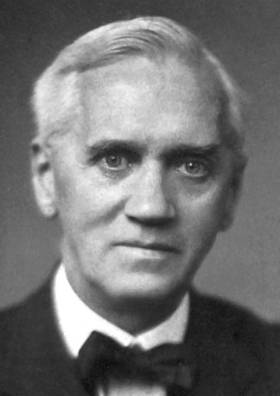
FAQ About Alexander Fleming

Who was Alexander Fleming?
Alexander Fleming was a Scottish bacteriologist and pharmacologist, best known for his discovery of the antibiotic substance penicillin in 1928. This groundbreaking discovery greatly advanced the field of antibiotics and has saved countless lives since its introduction as a treatment for bacterial infections.

What is Alexander Fleming famous for?
Alexander Fleming is famous for discovering penicillin, the world's first broadly effective antibiotic that revolutionized the treatment of bacterial infections. Prior to the discovery of penicillin, there were no effective treatments for many bacterial infections, which often led to severe illness or death.

When did Alexander Fleming discover penicillin?
Alexander Fleming discovered penicillin in 1928. He observed that the mold Penicillium notatum had antibacterial properties, which prevented the growth of bacteria in his laboratory experiments.

How did Alexander Fleming discover penicillin?
Fleming discovered penicillin by accident when he noticed that a mold called Penicillium notatum had contaminated a petri dish containing Staphylococcus bacteria in his laboratory. He observed that the bacteria around the mold had been destroyed, leading to his groundbreaking research on penicillin's antibacterial properties.

Why is Alexander Fleming's discovery important?
Fleming's discovery of penicillin was a major advancement in medical science. Penicillin was the first true antibiotic, which led to the development of new drugs capable of curing bacterial infections that previously carried high mortality rates. This significantly impacted healthcare and extended life expectancy globally.

What awards did Alexander Fleming receive for his discovery?
Alexander Fleming received numerous awards for his discovery of penicillin, the most notable being the Nobel Prize in Physiology or Medicine in 1945, which he shared with Howard Florey and Ernst Boris Chain, who further developed penicillin for widespread clinical use.

Did Alexander Fleming work alone on penicillin?
While Alexander Fleming discovered penicillin, the mass production and clinical use of the antibiotic involved significant contributions from other scientists, most notably Howard Florey and Ernst Boris Chain. They played a crucial role in turning penicillin into a widely used medicine.

Where was Alexander Fleming born?
Alexander Fleming was born on August 6, 1881, in Lochfield, a farm located near Darvel in East Ayrshire, Scotland. He was one of eight children in a farming family.

What were Alexander Fleming's early life and education like?
Alexander Fleming grew up on a farm in Scotland and attended local schools. He won a scholarship to Kilmarnock Academy and later moved to London, attending the Royal Polytechnic Institution. He studied medicine at St Mary's Hospital Medical School in London, where he began his research career.

What were some challenges Alexander Fleming faced in his research?
Alexander Fleming faced several challenges in his research, including limited resources and the initial difficulty of isolating and purifying penicillin in sufficient quantities. His early work wasn't fully appreciated until others built upon his findings and improved production methods during World War II.

How did penicillin change modern medicine?
Penicillin dramatically transformed modern medicine by providing an effective treatment for previously incurable bacterial infections. It opened the door for the development of other antibiotics, reduced surgical complications from infections, and saved millions of lives, effectively launching the age of antibiotic medicine.

What was Alexander Fleming's personality like?
Alexander Fleming was known for being modest and unassuming, with a keen sense of observation and scientific curiosity. Despite his groundbreaking discovery, he remained humble about his contributions, often crediting chance for his findings.

When and where did Alexander Fleming die?
Alexander Fleming passed away on March 11, 1955, at the age of 73, in London, England. He was buried in St. Paul's Cathedral, reflecting the significant impact of his contributions to science and medicine.

How did Alexander Fleming's discovery impact World War II?
The mass production of penicillin during World War II marked a turning point in military medicine as it dramatically reduced the number of soldier deaths from infected wounds. It was pivotal in treating bacterial infections, reducing morbidity and saving countless lives on the battlefield.

Was Alexander Fleming involved in any other significant scientific research?
Apart from penicillin, Alexander Fleming conducted research on antiseptics and the treatment of wounds during World War I. He also discovered the enzyme lysozyme, which has mild antibacterial properties and contributed to understanding infection resistance.

What is the legacy of Alexander Fleming?
Alexander Fleming's legacy is monumental in the field of medicine due to his discovery of penicillin. It initiated the era of antibiotics, radically transforming healthcare and treatment protocols. His work has saved millions of lives and continues to influence medical research today.

How is Alexander Fleming's discovery taught in schools?
In many educational curricula worldwide, Alexander Fleming's discovery of penicillin is taught as a pivotal moment in scientific and medical history. The narrative often highlights the serendipitous nature of discovery and the importance of scientific perseverance combined with collaboration.

Did Alexander Fleming receive immediate recognition for his discovery?
No, Alexander Fleming's discovery did not gain immediate widespread recognition. Initially, there was skepticism and difficulty in production. It wasn't until the work of Howard Florey, Ernst Chain, and Norman Heatley during the late 1930s and early 1940s that penicillin was mass-produced and its potential realized.

How has Alexander Fleming's work influenced modern pharmaceuticals?
Fleming's work laid the groundwork for the modern pharmaceutical industry, leading to the development of a wide range of antibiotics that are essential in treating bacterial infections. It shaped research priorities and methods, influencing drug development and preparation standards for subsequent medicines.

Has any place been named in honor of Alexander Fleming?
Yes, several places have been named in honor of Alexander Fleming, including schools, hospitals, and streets. Among the most notable is the Alexander Fleming Building at Imperial College London, where he spent much of his career.
